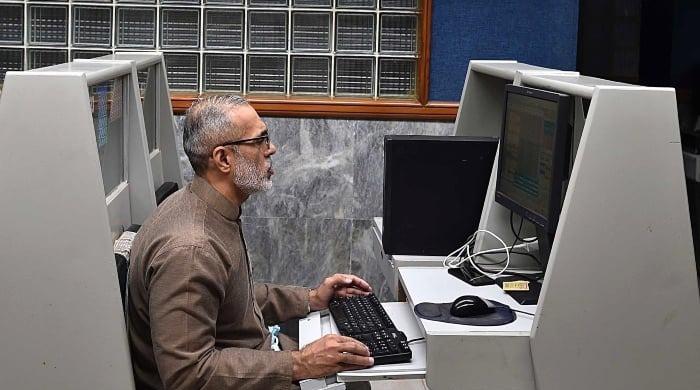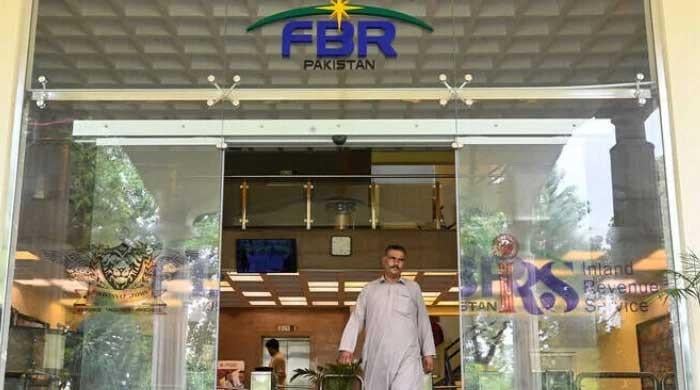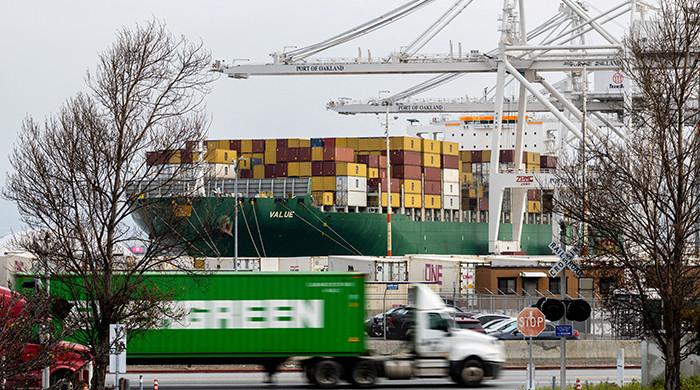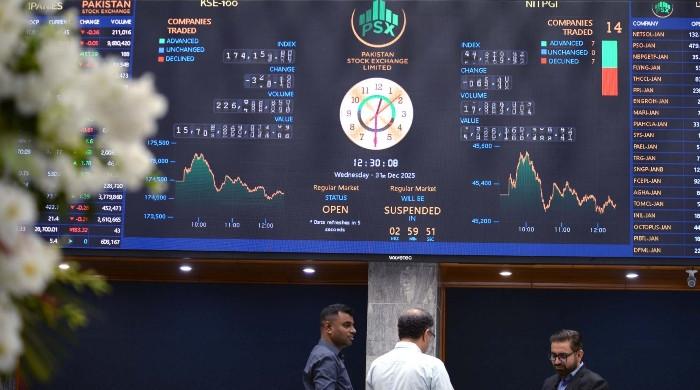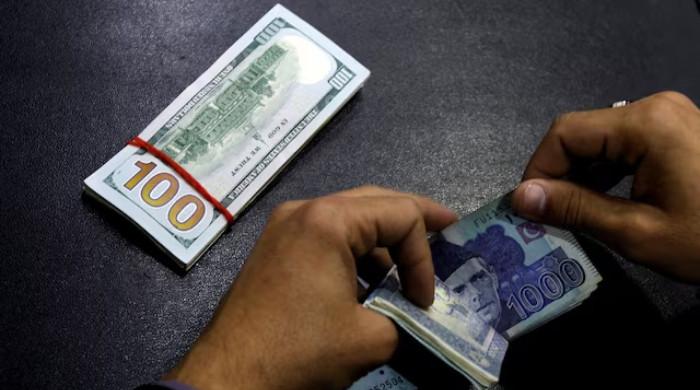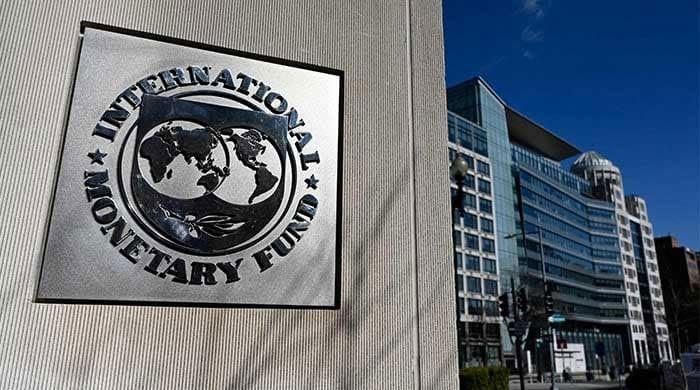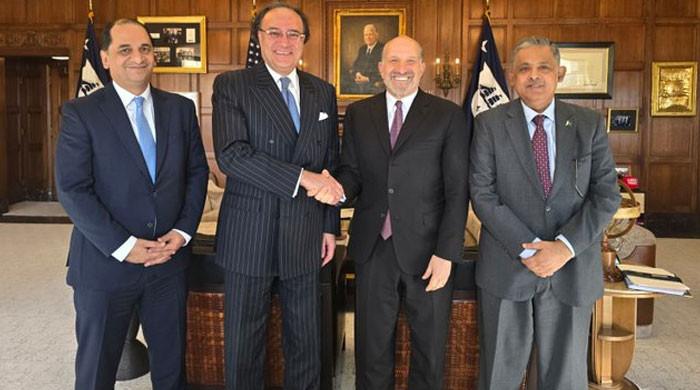‘IMF mission’s departure not a cause for concern yet’
“It has happened before in other countries. It has also happened before in Pakistan," ex-SBP deputy governor says
February 11, 2023
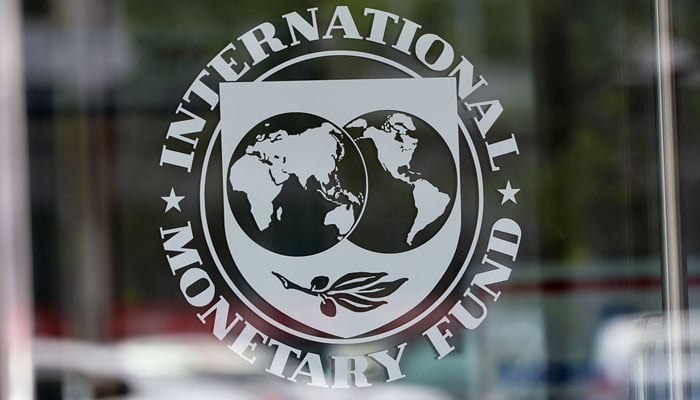
- “It has happened before in other countries," Murtaza Syed says.
- Pakistan desperately needs IMF funding to shore up forex reserves.
- IMF and Pakistan to continue talks over loan via video link.
KARACHI: State Bank of Pakistan's (SBP) former deputy governor Dr Murtaza Syed on Friday said the departure of the International Monetary Fund (IMF) mission without a staff-level agreement was not a cause for concern, but things could become challenging later on.
Syed, in a series of tweets, said that if the government and the IMF took too long to reach a staff-level agreement, the situation could be dire for Pakistan, as the country’s foreign exchange reserves have depleted to a dangerous level.
Syed’s remarks come after Pakistan and the IMF agreed to continue loan talks after Pakistan failed to secure a deal during the Fund’s visit.
According to Finance Minister Ishaq Dar, the country and the IMF have agreed on the conditions for releasing around $1.1 billion in urgent funds. Pakistan must come to an agreement with the IMF for further money from a $6.5 billion loan programme in order to unlock more aid, avoid default, and rebuild foreign currency reserves that have decreased to $2.9 billion.
It is now unknown when IMF staff-level negotiations will come to a finish because they have gone past the original end date of February 9. The IMF mission left on February 10.
Syed, who has previous experience at the Washington-based lender, said for an IMF team to leave town without an agreement is not that uncommon in programme reviews.
“It has happened before in other countries. It has also happened before in Pakistan. There are often some (differences) that remain or steps that need to be taken before an agreement can be inked,” Syed said.
He said the key issue was how large those differences were. Sometimes, Syed said, they are not that significant and just need a few days to settle. In these cases, the discussions can be concluded virtually and an agreement can be reached fairly soon after the mission has returned to DC, he said.
“We will know more in the coming days. Some finite time in reaching an agreement should not be too big an issue. But if it drags on for say longer than a month or so, then things (could) get more difficult as our FX reserves have reached a critical level,” he added.
“Messaging will be important in the interim, both from the government and the IMF. With sentiment fragile and people generally panicky, this will require maturity and care on both sides. Fingers crossed,” Syed said.
“Finally, we must remember that the next step is a staff-level agreement (SLA). That will then need to be taken to the IMF Board before the next tranche ($1.2bn) is released. This can take up to a month after the SLA,” according to Syed.
As one of the requirements specified by the IMF, Pakistan has already switched to a market-based exchange rate and increased fuel prices.
Dar stated that Pakistan would increase fuel prices gradually, and was thinking about drafting a new finance bill.
Dr Khaqan Najeeb, former advisor to the Ministry of Finance, said that with reserves at $2.9 billion and dollar liquidity shortages, Pakistan ideally should have reached a staff-level agreement at the end of the IMF mission on February 9.
Considerable progress was made on policy measures, he said, adding that the future was about finalising the MEFP document, and moving ahead with prior actions to reach a staff-level agreement in the coming days.
“Delay is untenable as Pakistan has been unable to refinance some key commercial loans. Friendly countries, bilateral partners and multilateral flows have also slowed their flows awaiting the IMF nod," Najeeb said.
"New revenue measures, hiking the levy on diesel by Rs10, electricity and gas price hike to bring circular debt flow to zero, a market-based exchange rate and ensuring a credible external sector dollar flow plan are the conditions that the country must fulfil for completion of the ninth review."
Pakistan is facing a serious balance of payments challenge as there are substantive debt repayment requirements along with financing of the current account deficit and the need to build up reserves till June 30, according to Najeeb.
The added concern is that friendly countries plus the IMF tranche might not yield sufficient inflows to cover the current account deficit and backlog payments, let alone fund debt repayments.
If the SBP crunches imports further, it would lead to higher unemployment; and coupled with inflation higher than 30%, things could lead to street violence.
“The government also needs to have a strategy to re-profile debts,” said Ehsan Malik, CEO of the Pakistan Business Council.
Originally published in The News




